St. Isidore The Worker Church of Saint Bernard
The title of this story had to be that long (without a choice and for clarity), because, the town's name also starts with "saint"! Ano ba yan hehe! In fact, it could even be longer! St. Isidore the Worker (San Isidro Labrador) Parish Church of Saint Bernard...Nice-looking with those big stained glass murals. Curiously though, you can look up now hehe, there is no real bell on the belfry! There are instead 4 loudspeakers facing in 4 directions. And it looks like there hasn't been any bell up there ever since! Was there?
Ah, malihis lang ng konti, did you know those loudspeakers are lately getting to be an issue in many places on earth? Noise pollution daw. And did you know that the first religion to have used them was Islam? Yes, in their 'calls-to-prayer', naki-gaya lang ang Catholics! And did you know too the first such use was 1936 in Singapore? Go find out!
I entered, and this is what I saw... a not so big but airy house of prayer...Even from the outside, we know instantly that this is not that old a church, right? But it is not also loudly modern with all the unnecessary decorations that many churches are starting to have nowadays! Of course I immediately noticed those round things above!
Each, a depiction of the stations of the cross. And I actually loved looking at those!Why do I love them? Well, for one, they are big and clear - not just little pieces of carved or painted 'tabla' that line up with electric fans, where you still have to squint to know what they are! In here, they are clear, if only to remind us of how Christ suffered for us!
As we say in Tagalog, "hindi lang basta-basta". Correct, di ba?! Just one glance, you can discern that by plan and purpose, these stations were envisioned to fill that wall space.
And this is the church's altar. Still simple and nice - even with the ornate windows!Oh, the bright rectangles on each side of the retablo are the sacristy doors. And it's not a 'multo' on the right door. He is real human - a 'sacristan' who was incidentally passing by!
The 'priest's view' - of the main entrance, the back of the façade and the choir loft...A beautiful little church?! I wanted to go up the choir loft but it was closed-off this time.
Trivia:
Many churches would sport the tagalog or bisaya name of their patron saint, this one retains the English version. So, it is not San Isidro Labrador, it is "St. Isidore the Worker"! Why so, I asked this about almost a decade ago, and no one, even the parish priest at the time, could give me a definitive answer. And their fiesta is not 15MAY, it is later in May!
The town's name of Saint Bernard has really nothing to do with a catholic saint! I also learned about this almost a decade ago. Until the 1950s, this was barrio Himatagon of San Juan, but barrio residents clamored to become an independent town of their own.
That wish was finally granted by Ramon Magsaysay which, residents claim was largely due to the "intercession" of Bernardo Torres, the sitting governor at that time. Old folks told me that, when we Filipinos thank somebody, we usually say "isa kang anghel", or "hulog ka ng langit" or "isa kang santo" - thus, they decided to name their town after the governor and coined "Saint Bernard", to honor him. I said 'debatable' but let it be anyway!
It's not as if Magsaysay just said "ok, this is now a town, what do you want to name it"?!
Then as now, when you submit an application to the government, you state your reasons or rationale, and you also state the end state of your request - including the new name, in the case of a barrio to town conversion, right? So, in the years of lobbying, the documents that Governor Bernardo Torres must have been carrying around did already contain "Saint Bernard" in it. So it was his "*" plan to immortalize his name via this town!
I say, he was successful, AND, I guess, rightfully naman, di ba?
Then a jolly old retired teacher (and a seasoned "kuratsa" dancer) said to me in a mix of waray-waray and bisaya "ayaw na lagi sige'g baribad kay amo iton ang amo'ang history". Da! That zipped my lips and locked my jaws on the topic. Case absolutely closed hahaha!
One last trivia: I asked how come this town seemed to have greater affinity to English nomenclatures than Spanish, Bisaya, Tagalog or Filipino. Ah the old folks easily answered that! The '50s was (American) liberation "hang-over". Anything American was still "IN"! That's why San Isidro was St. Isidore and Bernardo was Bernard - di paulihi si gob haha!
That was fun. Why didn't I write about these nine years ago?! Anyway..,
Let's go up to the municipal hall! And that, is my next story!
==========================================
Click these numbers for a chronology of my notes:
01
02
03
04
05
06
07
08
09
10
11 12 13 14 15 16 17 18 19 20
21 22 23 24 25 26 27 28 29 30
31 32 33 34 35 36 37 38 39 40
==========================================
Or just click "Newer Post" or "Older Post" below.
Ah, malihis lang ng konti, did you know those loudspeakers are lately getting to be an issue in many places on earth? Noise pollution daw. And did you know that the first religion to have used them was Islam? Yes, in their 'calls-to-prayer', naki-gaya lang ang Catholics! And did you know too the first such use was 1936 in Singapore? Go find out!
I entered, and this is what I saw... a not so big but airy house of prayer...Even from the outside, we know instantly that this is not that old a church, right? But it is not also loudly modern with all the unnecessary decorations that many churches are starting to have nowadays! Of course I immediately noticed those round things above!
Each, a depiction of the stations of the cross. And I actually loved looking at those!Why do I love them? Well, for one, they are big and clear - not just little pieces of carved or painted 'tabla' that line up with electric fans, where you still have to squint to know what they are! In here, they are clear, if only to remind us of how Christ suffered for us!
As we say in Tagalog, "hindi lang basta-basta". Correct, di ba?! Just one glance, you can discern that by plan and purpose, these stations were envisioned to fill that wall space.
And this is the church's altar. Still simple and nice - even with the ornate windows!Oh, the bright rectangles on each side of the retablo are the sacristy doors. And it's not a 'multo' on the right door. He is real human - a 'sacristan' who was incidentally passing by!
The 'priest's view' - of the main entrance, the back of the façade and the choir loft...A beautiful little church?! I wanted to go up the choir loft but it was closed-off this time.
Trivia:
Many churches would sport the tagalog or bisaya name of their patron saint, this one retains the English version. So, it is not San Isidro Labrador, it is "St. Isidore the Worker"! Why so, I asked this about almost a decade ago, and no one, even the parish priest at the time, could give me a definitive answer. And their fiesta is not 15MAY, it is later in May!
The town's name of Saint Bernard has really nothing to do with a catholic saint! I also learned about this almost a decade ago. Until the 1950s, this was barrio Himatagon of San Juan, but barrio residents clamored to become an independent town of their own.
That wish was finally granted by Ramon Magsaysay which, residents claim was largely due to the "intercession" of Bernardo Torres, the sitting governor at that time. Old folks told me that, when we Filipinos thank somebody, we usually say "isa kang anghel", or "hulog ka ng langit" or "isa kang santo" - thus, they decided to name their town after the governor and coined "Saint Bernard", to honor him. I said 'debatable' but let it be anyway!
It's not as if Magsaysay just said "ok, this is now a town, what do you want to name it"?!
Then as now, when you submit an application to the government, you state your reasons or rationale, and you also state the end state of your request - including the new name, in the case of a barrio to town conversion, right? So, in the years of lobbying, the documents that Governor Bernardo Torres must have been carrying around did already contain "Saint Bernard" in it. So it was his "*" plan to immortalize his name via this town!
I say, he was successful, AND, I guess, rightfully naman, di ba?
Then a jolly old retired teacher (and a seasoned "kuratsa" dancer) said to me in a mix of waray-waray and bisaya "ayaw na lagi sige'g baribad kay amo iton ang amo'ang history". Da! That zipped my lips and locked my jaws on the topic. Case absolutely closed hahaha!
One last trivia: I asked how come this town seemed to have greater affinity to English nomenclatures than Spanish, Bisaya, Tagalog or Filipino. Ah the old folks easily answered that! The '50s was (American) liberation "hang-over". Anything American was still "IN"! That's why San Isidro was St. Isidore and Bernardo was Bernard - di paulihi si gob haha!
That was fun. Why didn't I write about these nine years ago?! Anyway..,
Let's go up to the municipal hall! And that, is my next story!
11 12 13 14 15 16 17 18 19 20
21 22 23 24 25 26 27 28 29 30
31 32 33 34 35 36 37 38 39 40
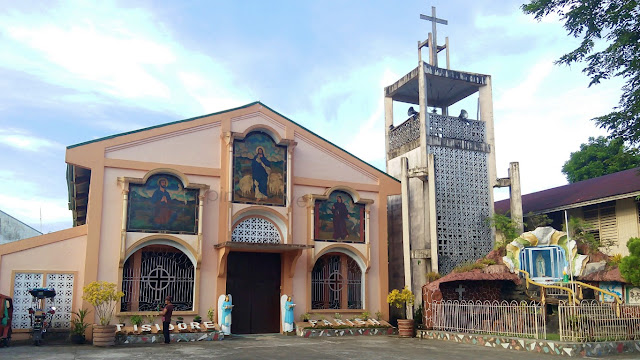
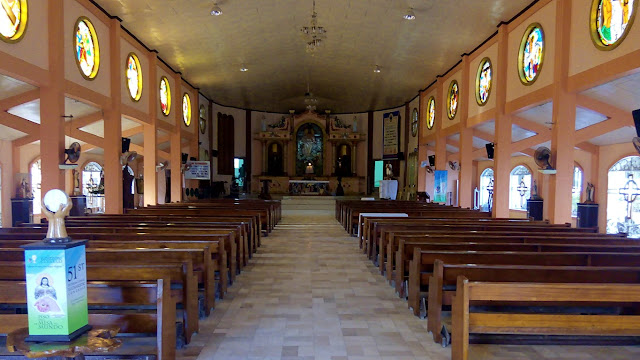
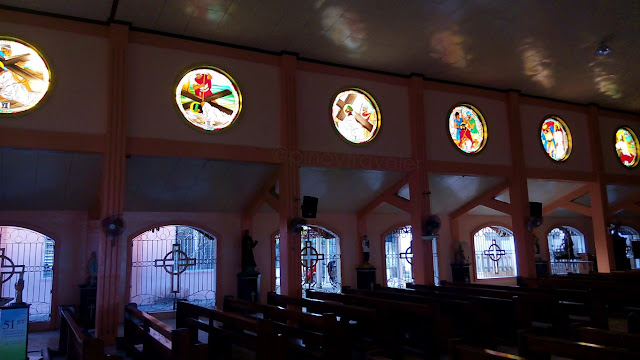
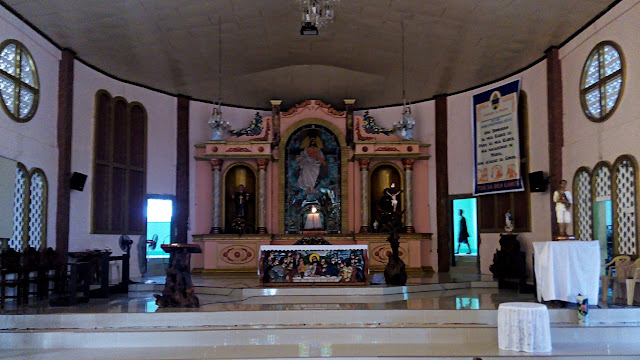
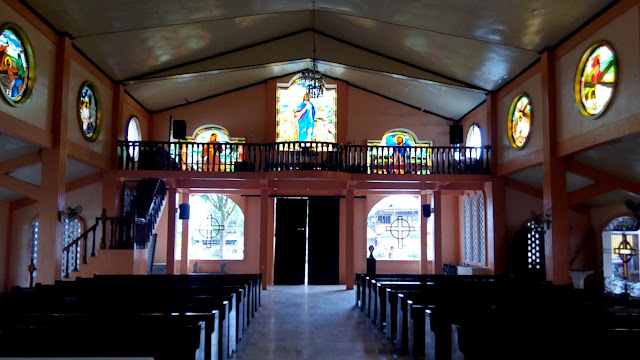

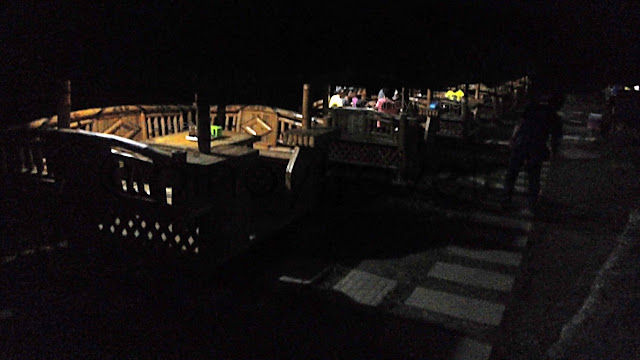
Comments
Post a Comment